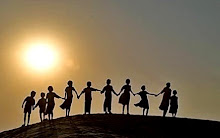New Delhi: The Supreme Court, while partly upholding the Kerala Restriction on Transfer by and Restoration of Lands to the Scheduled Tribes Act, 1999, has said the legislation is more beneficial to the tribal people than the 1975 law that was repealed.
A Bench of Justice S.B. Sinha and Justice Mukundakam Sharma partly allowed the appeals filed by the Kerala government against a judgment of the Kerala High Court dated August 24, 2000, to the extent that the 1999 Act repealed the 1975 law relating to agriculture land. However, the Bench held that the State admittedly had no legislative competence to enact legislation in relation to non-agriculture land. While enacting the 1999 Act, the State could not have disadvantaged the persons who held non-agriculture land, having enacted the 1975 Act, and thus could not have repealed a portion thereof. “We, therefore, are of the opinion that to that extent the 1975 Act would continue to be applied.”
Writing the judgment, Justice Sinha said: “The 1999 Act, if given a holistic view, is more beneficial to the members of the Scheduled Tribes than the 1975 Act. If the State contemplated a legislative policy for grant of more benefits to a vast section of people, taking care of not only restoration of land but also those who have not transferred any land at all or otherwise landless, the statute by no stretch of imagination can be treated to be an arbitrary and an unreasonable one.”
“Furthermore, we have noticed that the members of the Scheduled Tribes are educated and we can safely presume that most of them are serving various institutions. We are satisfied that the Legislature of Kerala kept in view the necessity of protecting the interest of the small landholders who were in possession and enjoyment of property which had belonged to the tribal community and at the same time ensured that the tribal people are not thrown out of their land and rendered homeless.”
The Bench said: “Keeping in view the promises made by the 1999 Act, it is obligatory on the part of the State to provide the land meant for the members of the Scheduled Tribes. If they do not have sufficient land, they may have to take recourse to the acquisition proceedings, but we are clear that the State will fulfil its legislative promise failing which the persons aggrieved will be entitled to take recourse to such remedies which are available to them in law.”
Source: The Hindu
A Bench of Justice S.B. Sinha and Justice Mukundakam Sharma partly allowed the appeals filed by the Kerala government against a judgment of the Kerala High Court dated August 24, 2000, to the extent that the 1999 Act repealed the 1975 law relating to agriculture land. However, the Bench held that the State admittedly had no legislative competence to enact legislation in relation to non-agriculture land. While enacting the 1999 Act, the State could not have disadvantaged the persons who held non-agriculture land, having enacted the 1975 Act, and thus could not have repealed a portion thereof. “We, therefore, are of the opinion that to that extent the 1975 Act would continue to be applied.”
Writing the judgment, Justice Sinha said: “The 1999 Act, if given a holistic view, is more beneficial to the members of the Scheduled Tribes than the 1975 Act. If the State contemplated a legislative policy for grant of more benefits to a vast section of people, taking care of not only restoration of land but also those who have not transferred any land at all or otherwise landless, the statute by no stretch of imagination can be treated to be an arbitrary and an unreasonable one.”
“Furthermore, we have noticed that the members of the Scheduled Tribes are educated and we can safely presume that most of them are serving various institutions. We are satisfied that the Legislature of Kerala kept in view the necessity of protecting the interest of the small landholders who were in possession and enjoyment of property which had belonged to the tribal community and at the same time ensured that the tribal people are not thrown out of their land and rendered homeless.”
The Bench said: “Keeping in view the promises made by the 1999 Act, it is obligatory on the part of the State to provide the land meant for the members of the Scheduled Tribes. If they do not have sufficient land, they may have to take recourse to the acquisition proceedings, but we are clear that the State will fulfil its legislative promise failing which the persons aggrieved will be entitled to take recourse to such remedies which are available to them in law.”
Source: The Hindu
























